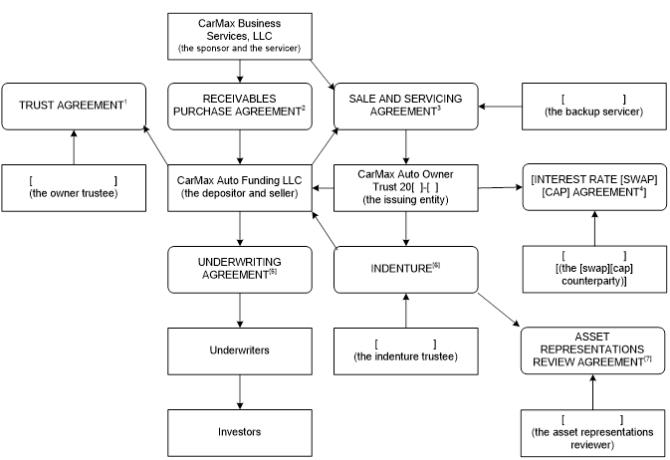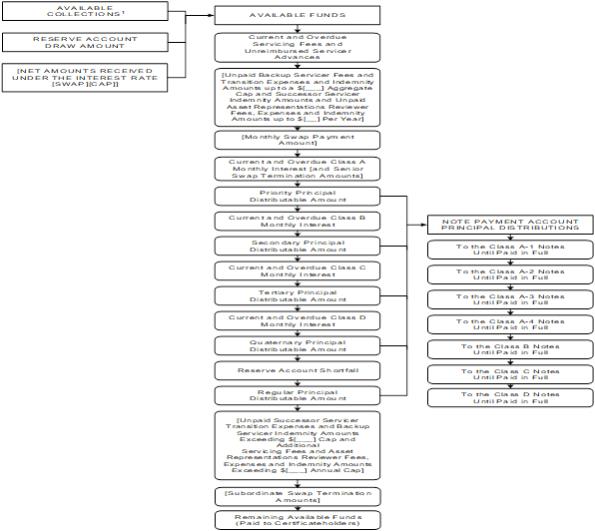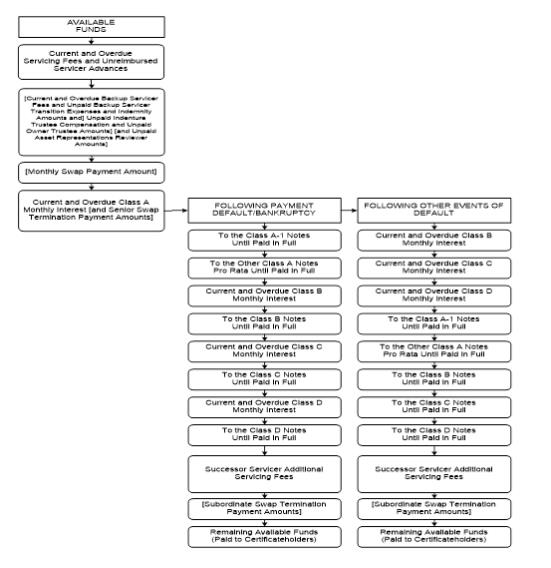| | The CFPB has successfully asserted the power to investigate and bring enforcement actions directly against securitization special purpose entities. On December 13, 2021, in an action brought by the CFPB, the U.S. District Court for the District of Delaware denied a motion to dismiss filed by securitization trusts by holding that the trusts are “covered persons” under the Dodd-Frank Act because they engage in the servicing of loans, even if through servicers and subservicers. CFPB v. Nat’l Collegiate Master Student Loan Trust, No. 1:17-cv-1323-SB (D. Del.). On February 11, 2022, the district court granted the defendant trusts’ motion to certify that order for an immediate interlocutory appeal and stayed the case pending resolution of any appeal. On April 29, 2022, the Third Circuit Court of Appeals granted the defendant trusts’ petition for an interlocutory appeal. On May 17, 2023, the Third Circuit Court of Appeals heard oral arguments in connection with the appeal. On March 19, 2024, the Third Circuit Court of Appeals issued its decision on this interlocutory appeal holding that the defendant trusts are “covered persons” under the Dodd-Frank Act and subject to the CFPB’s enforcement authority. On May 3, 2024, the defendant trusts filed a petition for rehearing and rehearing or rehearing en banc with the Third Circuit Court of Appeals. This petition was denied by the U.S. Court of Appeals for the Third Circuit on May 21, 2024. On August 20, 2024, the defendant trusts filed a petition for a writ of certiorari to the U.S. Supreme Court. Therefore, the CFPB and state attorneys general and state regulators, who have independent authority to enforce the Dodd-Frank Act, may rely on this decision in the future as precedent in investigating and bringing enforcement actions against other trusts, including the issuing entity. The CFPB also issued a Compliance Bulletin in February 2022 stating its position that automobile loan holders and servicers are responsible for ensuring that their repossession-related practices, and the practices of their service providers, do not violate applicable law, and the CFPB also described its intention to hold loan holders and servicers liable for unfair, deceptive, or abusive acts or practices related to the repossession of automobiles. In Fall of 2024, the CFPB issued a special edition of Supervisory Highlights focused on auto finance concerns, including deceptive advertising about available loan terms, misapplied payments or incorrect information about payment history reported to credit reporting agencies, unlawful repossession and the handling of add-on product and refunds after events such as repossession or early payoff of the account. The CFPB has entered into consent orders with a large national bank and a finance company related to, among other things, their servicing practices and the sales and refunds associated with ancillary products. It is possible that the CFPB may bring enforcement actions against securitization trusts holding automobile loans, such as the issuing entity, and servicers, such as CarMax Business Services, LLC, in the future. In addition, the Federal Trade Commission (“FTC”), state regulators, and state attorneys general have recently increased their scrutiny of motor vehicle dealers and auto lending, particularly with respect to antidiscrimination and deception concerns related to the prices of and fees charged in connection with automobile financing, including add-on products such as GAP insurance and extended warranties. For example, in July 2023, the New York Department of Financial Services issued a letter to regulated motor vehicle lenders and servicers reminding them to ensure that consumers receive certain rebates for ancillary products when motor vehicles are repossessed or declared a total loss. In addition, California has enacted a law governing the sale, offering or administration of GAP insurance in connection with retail installments contracts. Also, on December 12, 2023 the FTC issued a final rule that will (i) prohibit motor vehicle dealers from making certain misrepresentations in the course of selling, leasing, or arranging financing for motor vehicles, (ii) require accurate pricing disclosures in dealers’ advertising and sales discussions, (iii) require dealers to obtain consumers’ express, informed consent for charges, (iv) prohibit the sale of any add-on product or service that confers no benefit to the consumer, and (v) require dealers to keep records of advertisements and customer transactions. The final rule has an effective date of July 30, 2024, but the FTC has subsequently issued an order indefinitely postponing the effective date while a legal challenge against the final rule is pending. At this stage, it is unknown whether the final rule will have a broader potential impact on auto lending practices, including the auto lending practices of CarMax Auto Finance. |



